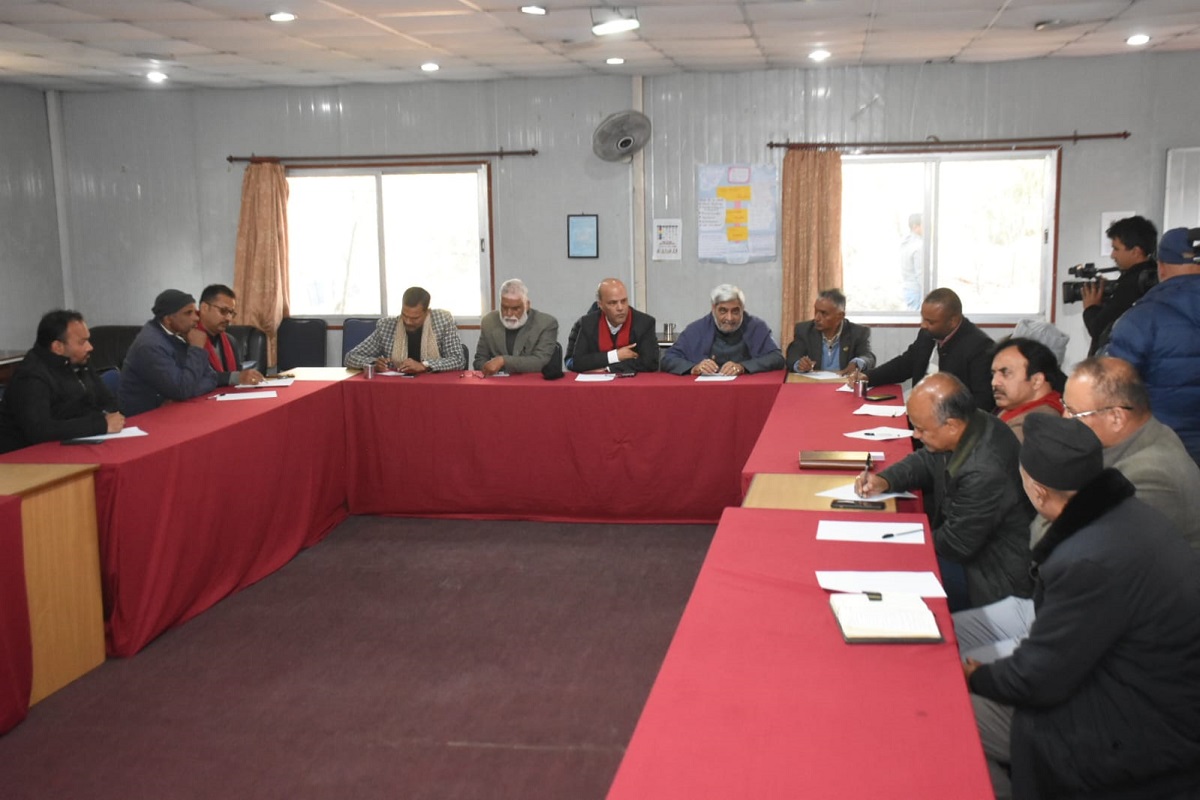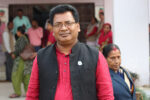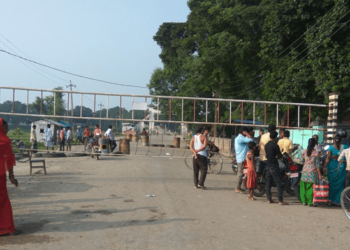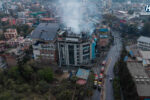KATHMANDU: Tarai-Madhes-centric political parties have agreed to form a loose alliance to collectively advance their shared objectives. The initial groundwork for this alliance began on Tuesday, aiming to incorporate the perspectives of all member parties and move forward as a united front if consensus is achieved.
Sharad Singh Yadav, spokesperson for the Janamat Party, said the parties involved will conduct internal discussions to determine further objectives. He also mentioned that both federal parliamentary and non-parliamentary Tarai-Madhes-centric parties are part of this agreement, with plans to eventually include other parties.
The meeting held on Tuesday saw the participation of Renu Yadav and Mohammad Ishtiyak Rai from the Janata Samajwadi Party (JSP), Jitendra Sonal and Surendra Jha from the Loktantrik Samajwadi Party (LSP), Sharad Yadav from the Janamat Party, Shivji Yadav from the Jan Pragatisheel Party, Keshav Jha from the Rastriya Mukti Party, and Brijesh Chandra Lal from the Tarai Madhes Loktantrik Party.
Although Rajkishor Yadav from JSP Nepal was expected to attend, he was unable to do so as he was in India. Nevertheless, JSP Nepal has confirmed its participation in the alliance.
Discussions are also ongoing with the Aam Janata Party, led by Prabhu Sah, and the Nagarik Unmukti Party, led by Ranjita Shrestha, for their inclusion in the alliance.
Shivji Yadav of the Jan Pragatisheel Party noted that the absence of Resham Chaudhary, currently in China, has delayed a final decision on their participation. He added that discussions with Prabhu Sah’s party have been positive.
Independent MP Amresh Kumar Singh has also joined the alliance. Known for advocating issues concerning Tarai-Madhes, Singh envisions uniting Tarai-Madhes-centric parties under a shared agenda. Singh, who rebelled against the Nepali Congress and contested as an independent, has been working actively to integrate various voices from the region.
While the alliance is currently in its formative stage, it has sparked significant political discourse. According to leaders, the primary impetus for this collaboration is the government’s plan to raise the electoral threshold to five percent, which could jeopardize smaller parties’ survival.
Leaders from the Janata Samajwadi Party have expressed concerns that this proposal has compelled smaller parties to come together.
Dr CK Raut, chair of the Janamat Party, explained that the loose alliance allows each party to operate independently for now. He emphasized that a collective stance will only emerge if the situation calls for forming a joint front.
Similarly, JSP Nepal Chairperson Ashok Rai highlighted the importance of aligning on shared objectives and expressed optimism about the positive message the alliance has generated.
The loose alliance, however, faces internal challenges. Historical tensions between key leaders of Tarai-Madhes-centric parties remain unresolved.
CK Raut and Upendra Yadav have reportedly not been on speaking terms since the 2022 elections. Similarly, Upendra Yadav and Ashok Rai have had strained relations following Rai’s decision to form a new JSP six months ago. Prabhu Sah and CK Raut also have ongoing disputes over the prominence of their respective parties, while Mahanta Thakur of LSP has his differences with Upendra Yadav.
Despite these challenges, efforts are underway to formalize the alliance. Shivji Yadav revealed that two representatives from each party are currently engaged in discussions.
A meeting of party leaders is expected within two weeks to finalize the alliance’s goals, policies, and future programs. The aim is to address the concerns of the Madhes population, which constitutes nearly half of Nepal’s total population, and create a unified platform for their voices to be heard.
Independent MP Amresh Kumar Singh, who has been actively involved in the alliance’s formation, has highlighted the urgency of uniting smaller parties to address issues such as constitutional amendments. Singh believes the alliance should establish a clear roadmap, including the possibility of forming a joint front. While he remains independent for now, he has indicated a willingness to join a formal front if necessary.
The alliance also faces external challenges. There are fears that major parties like the Nepali Congress and the CPN-UML may attempt to prevent the formation of a front, citing concerns about its impact on the political landscape. Speculation is rife that the Election Commission may introduce a provision barring alliances from contesting elections together, which would require parliamentary approval.
Despite these hurdles, the loose alliance marks a significant step towards unity among Tarai-Madhes-centric parties. Leaders have emphasized the importance of addressing national issues collectively and ensuring the representation of smaller parties in Nepal’s evolving political landscape.
Facing the threat of a proposed five percent electoral threshold that could jeopardize smaller political parties, Tarai-Madhes-centric leaders have agreed to form a loose alliance to collectively safeguard their shared interests. This initiative, still in its formative stages, seeks to amplify the voices of Madhesh, a region comprising nearly half of Nepal’s population, while ensuring smaller parties remain relevant in the country’s evolving political landscape.
The alliance, spearheaded by parties such as the Janata Samajwadi Party (JSP), Loktantrik Samajwadi Party (LSP), and the Janamat Party, brings together federal and non-parliamentary actors alike.
Tuesday’s meeting included prominent figures like Renu Yadav, Jitendra Sonal, Shivji Yadav, and others, signaling a significant shift towards political collaboration in Madhesh. Independent MP Amresh Kumar Singh, an advocate for Madhesh’s issues, has also joined the effort, emphasizing the need for constitutional amendments and a collective roadmap.
Although described as a loose alliance for now, leaders envision deeper collaboration if circumstances demand a formalized front. “We’ll continue to operate independently, but this alliance ensures a united voice when needed,” said Janamat Party President Dr. CK Raut.
The alliance faces both internal and external challenges. Historical rivalries among key leaders, such as Upendra Yadav, Ashok Rai, and CK Raut, threaten cohesion, while fears of obstruction from major parties like the Nepali Congress and CPN-UML loom large. Speculation over potential legal provisions to prevent electoral alliances adds another layer of uncertainty.
Despite these hurdles, the leaders are determined to move forward, holding discussions to finalize goals, policies, and programs aimed at addressing Madhesh’s socio-political and constitutional concerns.









Comment